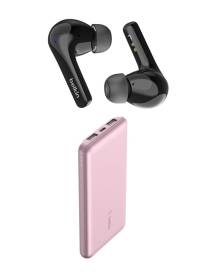Retail Shopping Tricks
Retail Tricks
Retail stores use 'tricks' to push you into making a purchase that you actually don't want to make or convince you that you're purchasing a product that isn't what it is promised to be. What are some of the retail 'tricks' sales consultant's use? Where has retail ethics disappeared too? What are ethical sales techniques?Shop assistants are trained to pressure you into make purchases that you normally would not make. These 'tricks' can be anything from promising extra discounts and freebies to special deals if you purchase the item then and there. Have you ever walked into a store and been unsure about buying an item? Everyone has. But, have you been told "If you purchase the item now and not leave the store, I will give you 20% off?" Discounts are deceiving and often they result in the customer leaving the store having spent money, they didn't really want to spend.
If you are not 100% sure on an item, don't purchase it straight away. Walk out of the shop, and if 24 hours later you still want or need that item, go back and purchase it. Often we make impulsive purchases due to pushy sales assistants; if we don't really want the item normally we will have forgotten about it after a day or decide that we cannot be troubled heading back to the store! If you do return to the store, ask another sales assistant to honour the discount you were offered the day prior, more often than not you will receive the discounted price.
Look around the counter of a retail store, is it covered in small, colourful items that appeal to impulse purchasing? Of course! These are placed near the cash register to encourage you to purchase additional items, without having time to think- especially as they are scanned almost instantly!
This 'trick' is most noticeable in supermarkets where chocolates, toys and lollies are placed at the reach of children; often close to the cash registers, in the hope that a child will grab the item and not let go. If you look at how the items are located in stores you will see the items that appeal to kids are within the lower shelves, at an arms length. If you think you are likely to give into impulse appeal purchasing, take a list and don't buy anything that isn't on your list.
Remember that retail stores use clever lighting and numerous mirrors in changing rooms to make their products look more impressive than they actually are. Always walk out of the dressing room and use other mirrors, take a photo of yourself or ask friends how the item actually looks.
Buying in bulk doesn't actually always save you. Four cereals for $20 is the same as purchasing one box for $5- do the maths and don't purchase in bulk if you don't need that many items. It's not saving if you are just going to throw out the other three boxes!
Retail stores provide numerous activities to ensure you stay in their store as long as possible, these often appeal to the senses such as a smells; for example burning candles in a homewares store or having a sweet liquorice smell in a chocolate store. Good music will often encourage a shopper to enter and stay longer in a store than they would have without music; this is also the same when staff are giving out free items such as discount vouchers, goodie bags and taste testing!
If you receive a discount voucher that encourages you to spend money to save money, make sure you would actually purchase that product normally, don't buy just to save- because ultimately you are spending unnecessarily.
Unfortunately for customers there are no formal codes of ethics for the conduct of sales assistants and their 'tricks', company's produce their own set of guidelines, and these normally ignore the retail 'tricks' mentioned above.
The introduction of a formal set of acceptable standards relating to selling, representing and providing information about a product need to be introduced to ensure that ethical sales behaviour is achieved across all retail stores.
As this is yet to be introduced, as customers we need to assess the behaviour of staff and decipher whether we trust the sales representative enough to purchase a product.
Consumers need to understand that it is the job of the sales assistant to understand a customer's needs and expectations.
When has lying become an effect and acceptable way of making a sale? Due to the increased size of shopping centres and numerous stores competiting against each other to sell the same product it is understandable that sales representatives want to sell as many products are possible; but is it ethical that they persuade customers to purchase incorrect or a higher quantity of products than they actually need? This unethical behaviour will back fire and ultimately effect the decisions customers make about the company.
As customers we should be able to trust the recommendations and advice that store staff provide, if an employee believes the item is not ideal for the customer they should be able to speak up and not worry if they loose the sale. What most personnel don't realise is that if they do this, often the customer will value their opinion on another product that they recommend, not only will they then still purchase they will tell their friends and family.
The problem with selling lies is that is it not only unethical and wrong it creates a dishonest standard for the store. Staff representatives need to consider the customer and the business. Reputation is not earned on how many dishonest staff have sold inaccurate items. Reputation is earned from happy customers that will return to a store.
The ideal staff member will always focus on what is best for the particular customer, people like to do business with those who they consider honest and who give them the best advice and deliver service.
As customers we need to ensure sales staff have to make the most ethical decisions to ensure that we return to the store and ideally tell our friends about the high quality of service we received at the particular store.
MORE



